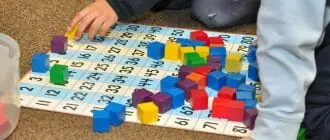Too often, students associate schoolwork with negative feedback: the corrections that they get from teachers when they do something wrong. While correcting work with an eye toward improvement is important, students also need positive feedback to nurture their self-worth and to see their work in a positive light. Your opinion as a teacher is valuable to the students that you teach, so making a point to compliment and praise them is a vital part of their growth and education.

The video below gives some great examples of how to compliment students and shows what big difference praises can make:
If you are confused while giving praise, you may take a SEL course, this will certainly help you. I add the list of the best courses SEL trainings here.
When to Give Praise
There’s never a bad time to give your students compliments! However, there are certain scenarios in which praise is most effective:
- when a student puts forth extra effort
- when a student masters a particular skill or concept
- when a student’s work goes above and beyond the expectation
- when a student sets or reaches a goal
- when a student exhibits a positive behavior
Compliments can be given at any time, so always be on the lookout for moments when a student’s work or behavior warrants a little bit of praise. This is particularly important when assessing their work. When grading a test or paper, be sure to include comments on what the student did well just as often as you correct things that could have been done better.
5 Steps to Effective Praise
It’s not enough to just give compliments to students — they need to be the right compliments! Follow these five steps to give the best praise to every student:
1. Be Specific
It’s easy to fall back on old standards like “Good job” or “Nice work.” However, these compliments are so cliché that students barely notice them. In addition, these phrases don’t tell the student what they did to earn the praise.

One of the greatest benefits of using compliments in your feedback is that students know what they did well, so they know that they should repeat those behaviors to continue excelling in the classroom. In addition, specific compliments will stick in their memory much longer, extending the benefits to their self-esteem.
2. Praise the Process
While it is important to give praise when assessing a student’s performance, don’t focus solely on the outcome.

Is a student putting forth extra effort to study for an exam? Is a student being creative in their use of resources? Is a student staying highly organized while working on a project? All of these are great examples of behaviors that you can complement!
3. Be Genuine
Lack of sincerity is a surefire way for a compliment to backfire. A false compliment is worse than none at all for building relationships with your class. Students can tell if you aren’t being genuine, so only compliment them when they’ve done something that actually warrants praise.

Besides, one of the most important reasons to compliment students is to encourage them to repeat positive behaviors; if your compliments aren’t genuine, you may end up making a negative behavior worse.
4. Be Sensitive
It’s important to get to know your students and to compliment them in ways that are comfortable for them. For example, some students love being the center of attention, while others shy away from the spotlight. Praising a wallflower in front of the whole class might make them uncomfortable, so stick to praising them one-on-one or in writing.

It’s also important to be aware of cultural issues; be careful of compliments that may serve to reinforce stereotypes. For example, telling a female student that you can’t believe how good she is at math or science reinforces the stereotype that girls aren’t as proficient in these subjects as boys.
5. Avoid Comparisons
It may seem great to tell a student that they had the highest test score in the class, but compliments that compare students to one another can actually do more harm than good. While it may feel good to the top performer, it can be detrimental to the rest of the class.

In addition, these types of compliments encourage competition, which isn’t ideal for learning. Students should be able to focus on learning the material without worrying about whether they’re doing it better than everyone else. Treat each student as an individual without comparing them to others.
Fun Fact: Just as it is important to praise students from time to time, it is likewise imperative to show gratitude to teachers from time to time as well. Teachers come in different forms; hence, the students’ thankfulness should be geared toward complimenting instead of comparing one against the other. Read my blog here: Thank You Note To Teacher.
Best Compliments for Students from Teachers
Let’s take a look at some examples of the best ways to compliment your students to ensure that your feedback is effective:
Student Performance: Effort
Use these compliments when a student goes the extra mile and puts in a lot of effort:
- You’re really working hard today
- That’s coming along nicely
- You must have been practicing
- You really went the extra mile
- I’m happy to see you working like that
- I’m proud of the work you did today
- This is the best you’ve ever done
- That’s quite an improvement
- I can see your hard work in this assignment
- You haven’t quit even on this tough problem
- Keep using those great strategies
- You have really grown
- I can see a difference in your work
- I appreciate your hard work
- It’s obvious from your grade that you worked hard to prepare for the quiz
- I saw you tackle that problem over and over until you got it
- I love how hard you’re trying
- It means a lot to me that you don’t give up
- Tell me about all of the hard work you did on this research
- You’ve been working hard on this every day
- You solved this problem with such focus
- Give yourself a hand for the way you handled this lesson
- I sure admire that perseverance.
- This project is coming along well
- Thank you for your hard work

Student Performance: Accuracy
If a student absolutely nailed it, try one of these compliments:
- Your project is first-rate
- I couldn’t have done it better myself
- You haven’t missed a thing
- Great job solving 20 problems correctly
- I didn’t find a single comma error in your paper. Great job!
- Your argument is very clear
- You came up with an excellent answer for that question
- You came up with a thoughtful answer
- You really nailed that experiment
- This was a well-argued paper
- Can you tell me how you came up with that great answer?
- You did every step in this problem just right
- You did a great job answering all parts of the question
- You really paid attention to details
- How did you come up with such a great answer?
- That’s exactly how I would have done it
- I can’t think of any ways to make this essay better
- Your work really got me thinking
- You came up with a really sound hypothesis
- Your arguments did a great job supporting your thesis
- That paragraph was really well organized

Student Performance: Fluency
When a student works hard and gains fluency in a skill, praise them with these compliments:
- You got that done quickly
- You figured that out fast
- You’re learning fast
- You’re catching on quickly
- You’ve got that down pat
- Look at you go
- You wrote nonstop through the writing period. Nice job!
- Nice, you finished on time
- You finished that experiment so quickly
- How did you solve that problem so quickly?
- You did that twice as fast as you did last week
- I’m impressed at how well you did those flash cards
- Great job using mental math
- Wow, you knew that right off the top of your head!

Work Product: Student Goal-Setting
It’s important to make and achieve goals for the future; try some of these goal-oriented compliments:
- You set a goal to complete your outline today, and I can see you’ve done it
- I like it when you make a time management plan
- You finished your essay today just like you wanted. Great job!
- I like that goal you set for yourself
- I’m proud of you for setting such an ambitious goal
- I think completing five problems is a great goal for you
- It’s great that you’re trying to achieve the goal you set for yourself
- That goal will really help you push yourself!

Work Product: Using External Standard
Students do well when they have standards. They do even better when a teacher uses some strategies for students to keep on task and standards, and you may read them in this article. Use one of these compliments when a student meets or achieves a standard:
- You just showed mastery on the grade’s math standards
- You did a great job including all the parts of a thesis
- Thank you for following the directions so carefully
- You did exactly what the directions said
- This is the kind of essay they’re looking for on the state exams
- This is great SAT vocabulary you used in your essay
- You learned all of the math concepts you’ll need for the test

Final Thoughts
While pointing out mistakes and potential for improvement is sometimes easier than finding ways to praise students, it shouldn’t be the sole focus of your feedback. Learning to compliment students regularly requires a shift in your mindset, but with regular practice, it can become an important part of how you interact with your class. Praise helps students know what they’ve done well and is important for their self-esteem and growth. Teachers are role models; never underestimate just how important your words are.
Last Updated on July 25, 2022 by Emily
- Facebook9
- Twitter22
- Pinterest67
- 98shares




